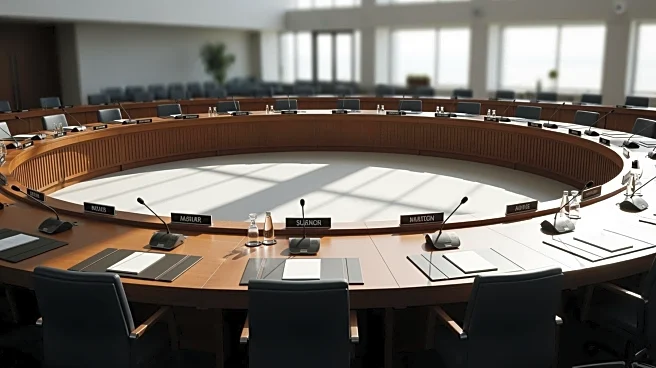What's Happening?
The United Nations Security Council has approved President Trump's 20-point peace plan for Gaza, which aims to secure and govern the region through international cooperation. Israeli Prime Minister Benjamin
Netanyahu has praised the plan, while Hamas has rejected it, viewing it as a foreign instrument of control. The plan includes a ceasefire framework, a transitional governing body, and a stabilization force to demilitarize Gaza. The resolution provides a mandate for international involvement in Gaza's reconstruction and security, with the potential for future Palestinian statehood.
Why It's Important?
The UN's endorsement of President Trump's plan is a significant development in the efforts to stabilize Gaza and reduce conflict in the region. The plan's focus on demilitarization and international cooperation could lead to substantial changes in Gaza's governance and security landscape. Netanyahu's support highlights the plan's potential to strengthen Israel's position and foster regional alliances. However, Hamas's rejection underscores the challenges of achieving consensus and addressing Palestinian demands for self-determination.
What's Next?
The plan's implementation involves the deployment of an international stabilization force to oversee Gaza's security and demilitarization. The plan also calls for dialogue between Israel and the Palestinians to explore pathways for peaceful coexistence and potential statehood. The international community, including Arab and Muslim nations, is expected to play a crucial role in supporting the plan's objectives and contributing to Gaza's reconstruction efforts.
Beyond the Headlines
The plan's emphasis on demilitarization raises questions about its impact on Palestinian self-governance and the broader Middle East peace process. The involvement of a multinational force could alter regional power dynamics and influence local governance structures. The plan's success depends on cooperation between various stakeholders, including Israel, the Palestinian Authority, and international actors. The long-term implications of the plan could affect regional alliances and the prospects for lasting peace.









